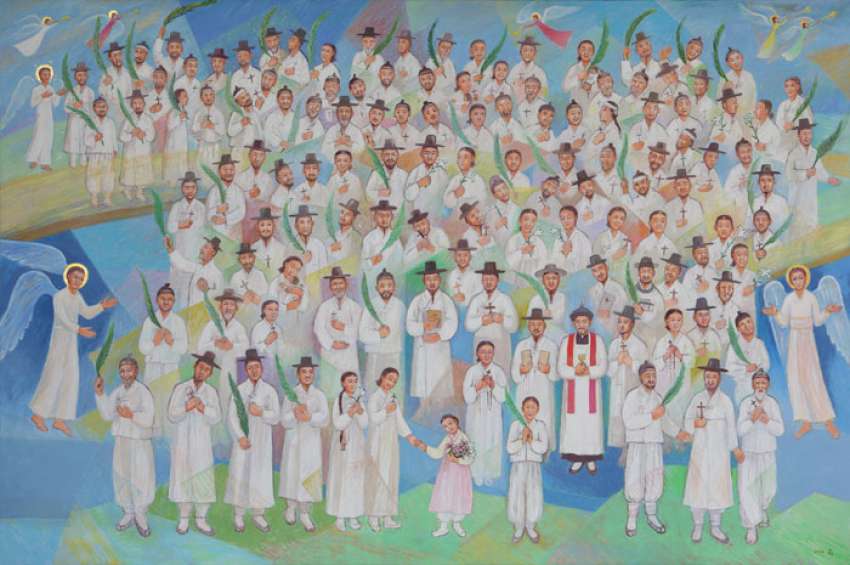Bishop Lazarus You Heung-sik of Daejon predicted it will take at least ten years before any beatification or canonization, “but for our people, these people are already holy.”
The bishop heads the Korean bishops’ committee considering the beatifications. He told Asia News that important parts of the path to beatification are the Catholic faithful’s prayer and “desire to follow the spirit of the martyrs.”
One group under consideration for beatification includes Servant of God Bishop Francis Borgia Hong Yong-ho and 80 companions. This broad group ranges from the martyrs of the 1901 Jeju massacre, in which about 300 Catholics were killed, to the victims of persecution following the division of Korea following the Second World War.
Bishop Hong, born in 1906, was ordained a priest in 1933 under Japanese occupation. He was named the first native Bishop of Pyongyang in 1944. He was an apostolic vicar to a region considered mission territory by the Church. With the rise of communism, he was imprisoned in 1949. His fate is unknown, but he is believed to have died in a concentration camp in North Korea.
Until 2013, when he would have been 107, the Vatican considered him missing. Acknowledgment of his death opened the path to possible beatification.
Bishop Patrick James Byrne, a native of Washington, D.C., is also among the group. The Maryknoll missionary was born in 1888. He was ordained a priest in 1915, then served in Korea and Japan before the Second World War. In April 1949 he was named the first apostolic delegate to Korea, and ordained a bishop at the age of 60 in 1949.
In July 1950 he was arrested by communists and put on trial. He and other priests were put on forced marches. During a four-month-long forced march, suffering from bad weather and a lack of food and shelter, he died Nov. 25, 1950.
Altogether, the group associated with Bishop Hong includes two bishops, 48 priests, three seminarians, seven religious sisters, and 21 lay people.
The second group, Servant of God John Baptist Yi Byeok and his 132 companions, were all lay people killed for their faith between 1785 and 1879. Yi was from a family of court dignitaries who under the Joseon dynasty converted to Catholicism and helped evangelize Korea. He was martyred at the age of 33.
One of their number, Alexius Hwang Sa-yeong, died by martyrdom when his arms and legs were tied to four animals which were then driven away in opposite directions, dismembering him.
Another in the group died in exile and his martyrdom must be verified.
The Korean bishops' conference has set up a special committee for the causes of saints with a Vatican mandate to consider martyrs who belong to different dioceses.
(Story from the Catholic News Agency)


